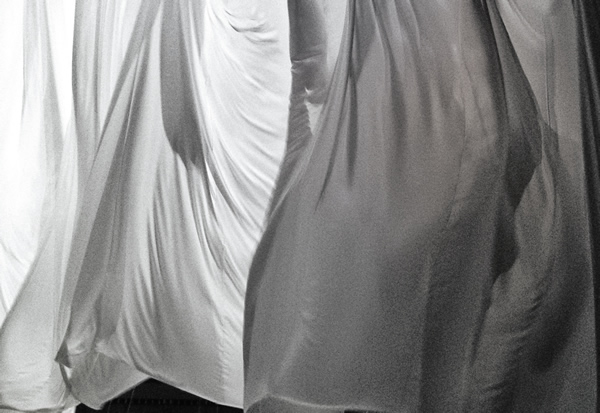This Shabbat we open a new book of the Torah. God calls out (“Vayiqra”) to Moses from inside the Tent of Meeting, the very tent that the people had worked so hard to construct, as described in the previous book, Exodus. God’s call will initiate a further revelation from God of more instructions to be shared with the Children of Israel. But why did God have to call out to Moses? Why didn’t God just continue to speak to Moses as God had been doing all this time?
The background for understanding why this call was necessary seems to be given to us at the very end of the previous book. We are told that God’s Glory filled the Tent as soon as it was constructed and consecrated: “And Moses could not enter the Tent of Meeting because the Cloud dwelt upon it, and the Glory of the Eternal filled the Tabernacle.”(Ex. 40:35) So it seems that God’s Presence did not allow Moses to enter the Tent until God gave him permission to do so by calling and inviting him inside.
But when we read the Targum – the interpretive Aramaic translation of this verse, Targum Yonatan, it tells a different story: “Once Moses had completed the Tabernacle, he thought and made a logical argument in his heart. He said, ‘In the case of Mount Sinai, whose glory was temporary, and whose sanctity lasted a mere three days, I was not allowed to ascend until God spoke to me. How much more so must it be the case with regard to this Tabernacle, whose glory is forever and whose sanctity is forever! It is only logical that I am not allowed to enter it until God invites me in.’ Therefore: ‘God’s Voice called out to Moses from the Tent of Meeting.’”
According to this tradition, God’s call was not uttered because Moses simply could not enter a Tent that was already filled to capacity with God’s Presence. Rather, God had to call Moses because Moses had convinced himself that he could not enter. It was not in the Tabernacle, but, rather, in Moses’ own heart that God’s Presence had taken on an all-encompassing fullness that allowed for no human engagement. So, paradoxically, God had to call him to overrule Moses’ assumption!
Moses had developed such an awesome idea of God’s Presence that it paralyzed him and prevented him from drawing close to God, precisely when God desired to “meet” with him. God responds to Moses’ lofty spiritual conception, a conception so lofty that it precluded any drawing near to God, by calling out to Moses to enter the Tent of Meeting. And God immediately tells him to teach Israel of a very non-lofty system of drawing close to God, the system of sacrifices. It is no coincidence that the word for “sacrifice” in the Torah is “qorban,” which literally means “drawing close.”
With its concentration of sacrifices, the book of Leviticus seems to derive from a primitive and lowly concept of the Divine. Thus it is notoriously difficult for moderns to appreciate. I mention this every year when we reach this point in our Torah reading. But the targum’s surprising reading of this first verse of the book seeks to present Leviticus as a user’s manual for drawing close to God, a manual made necessary by our own tendency to create such purified concepts of God that, while they purport to render greater glory to the Eternal, they actually serve to persuade us that God cannot be part of our lives. This book tells us that the Glory of God is not measured by God’s inaccessible distance from us, but by God’s seeking us out and calling for us.
One further note – This Shabbat is also Shabbat Zakhor, the Shabbat when we must remember what Amaleq did to us. Amaleq attacked the stragglers who were left behind as the Israelites marched forward in their newly acquired freedom. What Amaleq did was pure evil. But Amaleq would not have been able to attack their weak and straggling victims had the Israelites made an effort to draw these powerless unfortunates close and keep them within the camp. If we are to remember the story of Amaleq and draw a lesson from it, then we must certainly remember this: Just as Leviticus teaches us that God calls for us to draw near, so we must learn from God’s example and make sure that the weak and vulnerable not be left outside of our society. And if anyone may think that they have no access to our tent, we must call out to them and we must invite them in.
Shabbat Shalom
Rabbi David Greenstein
![]()
Subscribe to Rabbi Greenstein’s weekly d’var Torah
Image(s): “billow” © Suwatch used with permission via Creative Commons License
- Toby Stein: In Memoriam - Thu, Feb 8, 2024
- Faithfulness and Hope: Parashat Sh’lach - Thu, Jun 23, 2022
- Past Their Prime: Parashat B’ha`a lot’kha - Thu, Jun 16, 2022

